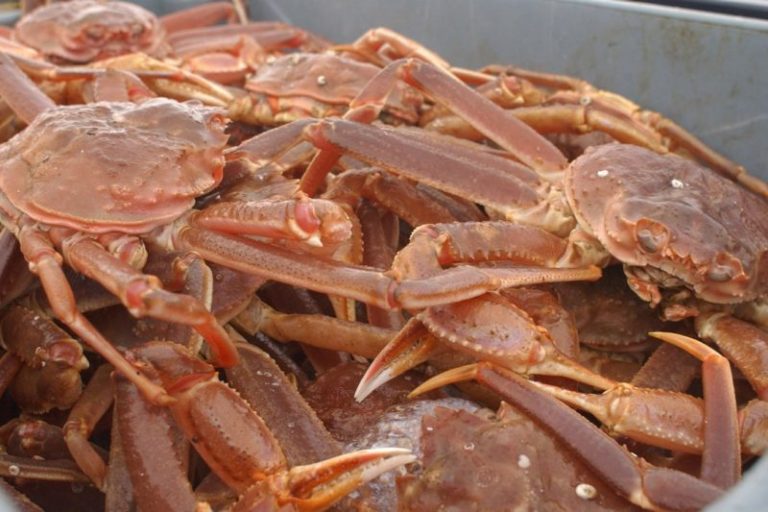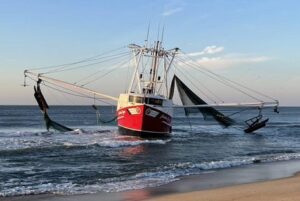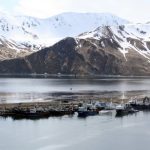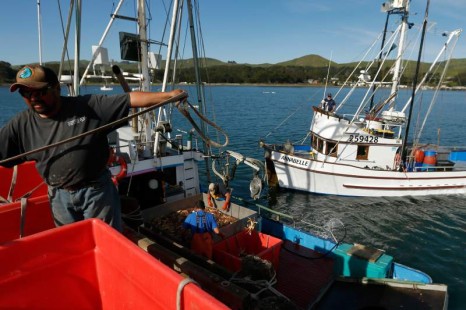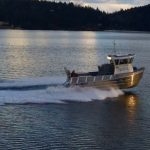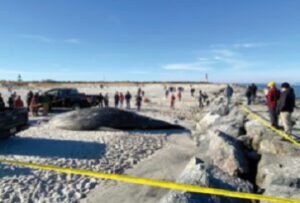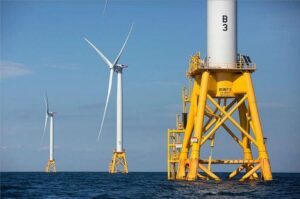Monthly Archives: June 2018

The AQUAA Act – Wicker Introduces Bill to Advance American Aquaculture
U.S. Senator Roger Wicker, R-Miss., today introduced the “Advancing the Quality and Understanding of American Aquaculture (AQUAA) Act.” The legislation would streamline the permitting process for aquaculture farms in federal waters, and fund research and development to advance the aquaculture industry.,,, The AQUAA Act would establish an Office of Marine Aquaculture within the National Oceanic and Atmospheric Administration (NOAA), which would be charged with coordinating the federal permitting process. Additionally, a permit would be established through NOAA that would give an individual the security of tenure necessary to secure financing for an aquaculture operation. >click to read<17:04

Sympathy to new state Washington Department of Fish and Wildlife director
Dear Mr. Kelly Susewind, Allow me to express my deepest sympathy. .,, You said it was an honor to serve the people of the state of Washington. And you want to “deliver the results they deserve.” That’s scary.,, The orcas are starving from a lack of salmon. So, we shut down the salmon hatcheries and protect the exploding population of sea lions, seals, cormorants and mergansers that eat as many salmon as the orca and humans put together. The surviving salmon are forced to swim through the thousands of tons of pollutants in a chemical stew that we dump into Puget Sound every year, whose ingredients include but are not limited to sewage, drugs, pesticides, herbicides, personal care products and industrial chemicals, while ignoring the impacts on fish, orcas and humans. Pat Neal >click to read<14:59
Washington Department of Fish and Wildlife names Kelly Susewind new director – >click to read<
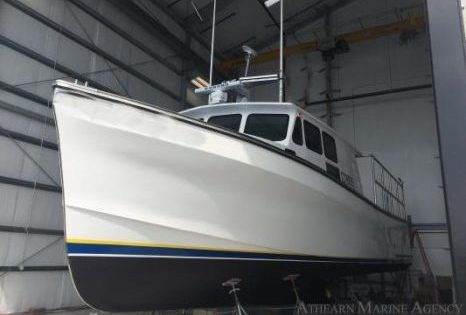
Athearn Marine Agency Boat of the Week: 45′ Fiberglass Lobster boat, 815HP 6 Cylinder Baudouin, Northern Lights 12 KW Genset
Specifications, information and 7 photos >click here< To see all the boats in this series, >click here<12:21

FISH-NL calls on Ottawa to release 2018 caplin management plan for the Gulf; roll over last year’s quota
The Federation of Independent Sea Harvesters of Newfoundland and Labrador (FISH-NL) is calling on the Government of Canada to release the 2018 caplin management plan for the Gulf of St. Lawrence, and recommends a roll over of last year’s quota. “How the hell can we survive when it’s the middle of caplin season with no management plan and no quota?” says Boyd Lavers, FISH-NL’s Captain of the over 40-foot fleet, and an inshore harvester from Port Saunders on the Great Northern Peninsula. “The minister of Fisheries and Oceans is either punishing us or he’s trying to bankrupt us.” >click to read<10:47

American oldest seaport, Gloucester needs new fishermen to keep Gloucester fishing into future !
There is a problem facing most of our fishing communities today in the U.S. Fish stocks are coming back, and most of our fishermen are gone. Our fishing communities need to get young people into the fishing industry. Here’s an example: NOTICE America’s oldest seaport needs new fishermen to keep the City of Gloucester fishing into the future! Whiting fishing begins July 15, 2018, and at age of 75, Sam Novello might have to go back whiting fishing again because lack of fishermen in today’s commercial fishing industry. (He’s looking for a crewman.) >click to read<09:15

Conservationist intends to sue five states over whale entanglements, including individual lobstermen
A noted North Atlantic right whale conservationist who is suing Massachusetts officials over the licensing of commercial lobster pot gear has said he intends to do the same thing in five other states starting with Maine. The Maine DNR is killing and injuring endangered whales and sea turtles in U.S. coastal waters from its licensing of lobster pot gear, and gill nets, said Richard “Max” Strahan of Whale Safe USA, which is based in Cambridge. >click to read<08:18
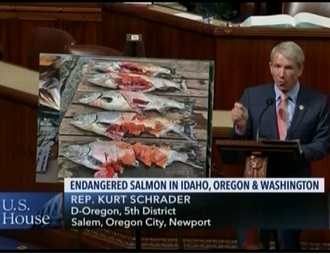
House approves bill that would allow the killing of sea lions
The U.S. House of Representatives approved a bill Tuesday that would allow the lethal removal of sea lions in order to save endangered salmon and steelhead populations — the primary food source for the endangered Southern Resident orcas. The Senate companion bill has yet passed. The House legislation, sponsored by Reps. Jaime Herrera Beutler, R-Wash., and Kurt Schrader,D-Ore., provides tribal managers and government fish managers with the means to remove limited numbers of California and Stellar sea lions from specific areas where they are posing the most harm to endangered native fish runs. >click to read<20:11
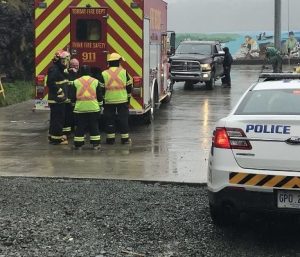
Fishermen Rescue Man Who Fell Overboard in Torbay
A fisherman out of Torbay is OK after he fell into the rolling waters off Tappers Cove. It was a cold, rainy, and blustery day in Torbay, and the waves crashing into the wharf at Tappers Cove were intimidating—but not enough to keep away local commercial fisherman Wayne Bradbury. According to the Torbay Volunteer Fire Department, Bradbury has a fishing vessel tied on just outside Tappers Cove. He was concerned the vessel was taking on water, and decided to go check it out for himself, heading out in a small aluminum fishing boat. >click to read<18:29
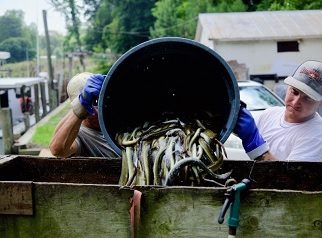
Slithering from the bay to dinner tables far overseas
When onlookers see Jimmy Trossbach pull up pounds and pounds of eels from his pots from the water, they are amazed. “They get a little closer to stare at them,” Trossbach said. “Then they get scared and they back up” from the slimy, snake-like aquatic creatures. The most frequent comment he hears is that they didn’t know eels existed in the Chesapeake Bay, just like oysters, crabs, rockfish and other marine species with which Marylanders are familiar. A waterman who lives less than a mile away from where he was born in Drayden, Trossbach has spent many of his waking hours hunting for eels up and down the bay and its tributaries for the past 31 years. >click to read<16:33
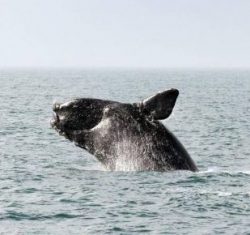
Letter: Consultation and collaboration with fishermen needed on whale situation
I have watched from the comfort of my home – this from Ottawa and DFO: “Robust, science-based, coherent measures to protect these highly endangered North Atlantic right whales; we’re really playing Russian roulette with the entire future of the Canadian fish and seafood industry,” Mr. LeBlanc (the fisheries minister) was quoted as saying. Very strong words, but wait a minute – don’t we live in Canada? What about our Charter of Rights and Freedoms? The right to participate in political activities and the right to a democratic government? Sterling Belliveau, Former Nova Scotia fisheries minister >click to read<13:28
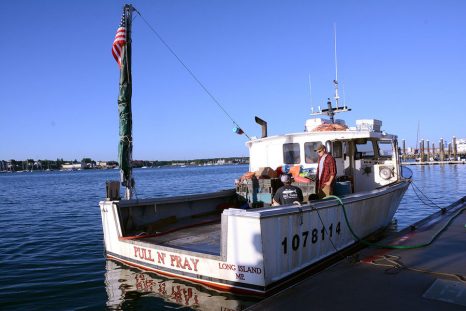
For Maine lobstermen, conservation and success go hand in hand
It’s 7 a.m. on the Pull n’ Pray. The lobster boat rocks over large swells as the water sparkles in the June morning sun. The grating whirr of the hydraulic winch drowns out the hum of the boat’s motor as it lifts the first lobster trap of the day out of the water. Justin Papkee swings the trap up onto the side of his boat and quickly opens the latch. Suddenly there are lobsters flying through the air. Mr. Papkee’s blue rubber gloved hand is nearly a blur as he reaches again and again into the open trap, tossing the lobsters back into the water rapid-fire before pulling in the next trap. >click to read<12:28

FISH-NL – Inshore harvesters and aboriginals should have to abide by same fishing regulations
The Federation of Independent Sea Harvesters of Newfoundland and Labrador (FISH-NL) says two sets of commercial fishing rules for aboriginal versus non-aboriginal harvesters are creating an unfair playing field on the northwest Atlantic. “Aboriginal harvesters do not have to follow the same regulations as other commercial harvesters when they’re fishing the same fish, side by side at the same time ,” says Ryan Cleary, President of FISH-NL. “That’s not only unfair, but it creates a competitive advantage for aboriginal harvesters and breeds division.” >click to read<11:22
House of Representatives Rules Committee Hearing H.R. 200, 2083, 6157 – June 25, 2018
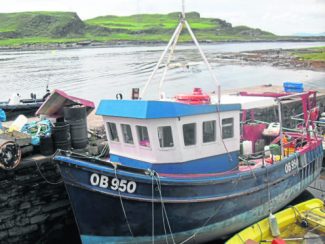
‘Owner should have ensured fishing boat was seaworthy’
The owner of a small fishing boat, whose sinking led to the death of a father-of-three, should have ensured it was in a seaworthy condition. That was the view of Procurator Fiscal David Glancy yesterday as the final submissions were made in a Fatal Accident Inquiry into the death of 40-year-old Scott MacAlister. Mr MacAlister was the skipper and sole occupant of Speedwell, owned by Luing ferry captain John Connell, which sank off Easdale Island on April 25, 2013. The inquiry earlier heard that the boat had a leaky hatch. He stated that another precaution would have been for the owner of Speedwell to ensure there were life jackets on board the vessel. >click to read<09:54
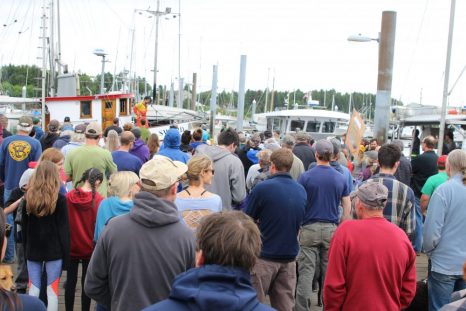
Fearing another Chinook cut, Sitka’s troll fleet calls on President Trump
Over 200 fishermen and supporters gathered at Eliason Harbor on Sunday with signs and voice raised. They made a direct appeal to President Donald Trump to get involved with Pacific Salmon Treaty negotiations. Alaskan fishermen fear the state will agree to another cut to their king salmon allocation with Canada. Fishermen don’t tend to seek the limelight. But troller Caven Pfeiffer was advised that if he wanted attention on Pacific Salmon Treaty negotiations beyond the fleet, he should consider lighting something on fire. “This is my boat payment,” he said with relish while lighting the edges. The crowd laughed with grim recognition of the financial hardship they’ve experienced in the last few years. >click to read<08:00
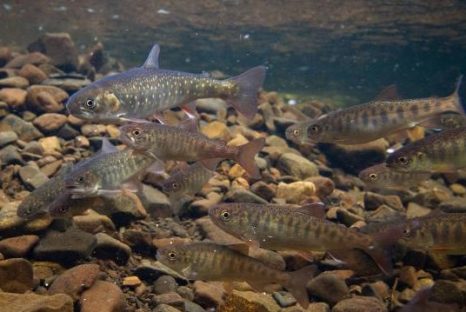
The impossible journey of the juvenile coho
As a Ph.D. student with the University of Washington’s Alaska Salmon Program, Jonny Armstrong — now assistant professor at Oregon State University’s Fish and Wildlife Department — snorkeled the Wood River in the Bristol Bay watershed. He soon encountered a mystery: juvenile coho as much as a mile from the nearest sockeye spawning ground had sockeye eggs in their stomachs. Sockeye lay their eggs in cold water, where there’s lots of oxygen. A juvenile coho, however, doesn’t best digest sockeye eggs in that water — cold slows its digestion, meaning if it stayed there, it might need a week to process just one meal. >click to read<22:38
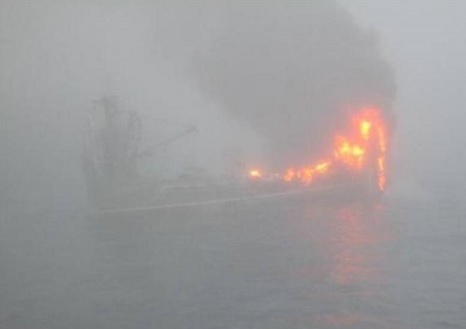
Captain of scorched fishing vessel mourns loss of ‘dream’ boat
It’s been three days since Stan Bennett and his crew were rescued safe and sound after issuing a mayday from their burning fishing vessel, and now they’re trying to figure out how to best chart their new course forward. According to the Coast Guard, the 63-foot Challenger Traveler — which Captain Bennett, and his brother Derwin, used as a crab fishing boat — burned to the water line and sank following a dramatic evacuation on Friday.,,, Bennett’s also looking for the fishing gear and cages he left behind on the ocean, where his crew had dropped 500 pots. >click to read<20:24
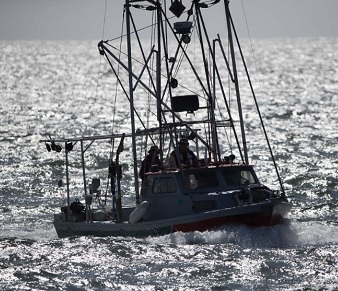
Wild salmon return to Bay Area markets
Local wild king salmon are back in Bay Area markets and restaurants after the commercial season reopened last week from Pigeon Point (near Half Moon Bay) south to the Mexico border. “The fleet just found a school of beautiful salmon,” San Francisco fisherwoman Sarah Bates said via a text from her boat, the Bounty. This current window of commercial salmon season is scheduled to last from June 19 to June 30. Bates said the fleet had to wait until about the third day of the opener to start fishing, once the school moved south of the Pigeon Point line with the movement of prevailing currents and feed. >click to read<19:43

No, lobsters aren’t actually immortal: The science behind their long lives
In 2017, a massive 22-pound lobster named Louie, estimated by some sources to be 132 years old at the time, was pardoned after spending 20 years at a seafood restaurant in Island Park, New York. He was later deposited in the nearby coastal waters, complete with a ceremonial send-off. This story was revived in a recent Twitter conversation about the longevity of the crustacean, which has only been a dining delicacy in the United States since the mid-19th century, suggested lobsters may be immortal (Technically, Twitter user @JUNIUS_64 theorized the lobsters “made a deal with the devil for conditional immortality and it backfired on them”). The sort of “immortality” of lobsters is linked to telomeres–a structure on the end of a chromosome–that is constantly repaired in lobsters. >click to read<15:58
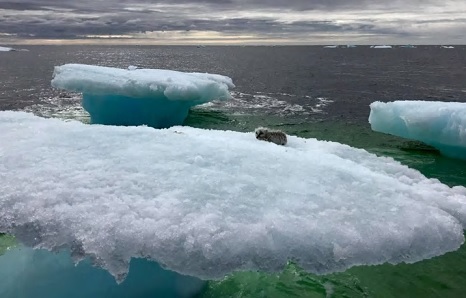
Stranded fox rescued from iceberg by fishermen who fed him Vienna sausages
An Arctic fox generally isn’t part of a crab fishing boat’s bycatch, but one crew from southern Labrador managed just that last week. Alan Russell of St. Lewis said his ship was about seven kilometres offshore when they spotted something on a nearby iceberg. “We seen something on the ice. Wasn’t sure what it was,” Russell told CBC’s Labrador Morning. “So we got up closer to it. It was a little fox, Arctic fox. And he wasn’t very big. He was soaking wet, and the gulls was trying to pick at him.” >click to read<14:06
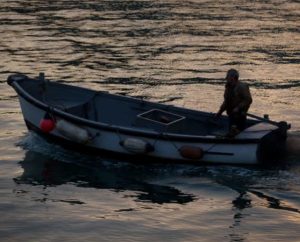
A fishermen had his fish stolen at knife-point while three miles out at sea.
A fisherman has been robbed at knife-point while three miles out at sea. Police report a lone man was fishing in the channel of Slapton Sands, off the coast of South Devon, when two men an inflatable boat approached. After the fisherman confronted the men, they threatened him with a knife, cut his nets and stole his catch. Local reports say the fisherman had a quantity of plaice and Dover sole stolen. Both are popular fish, and the latter is high-end: a Dover selling for £40 or more in a restaurant is not uncommon. A theft at sea like this is extremely rare, concerning the fishing community. >click to read<12:09
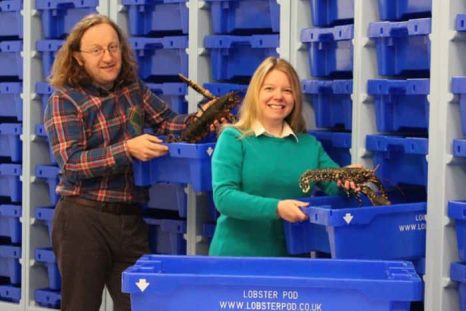
Fife firm making a splash with lobster pod storage system.
A Fife firm is aiming to double sales over the next two years as it rolls out a shellfish storage system that it believes will revolutionise the fishing industry. Family-owned Todd Fish Tech, which is based in Dalgety Bay, has patented its Lobster Pod product, which is said to increase the survival rate of landed lobsters, crab and langoustine from one or two days to up to six months. Instead of storing the shellfish in polystyrene trays or heavy tanks of water, they are held in individual plastic palettes with chilled and filtered water. These reduce stress and damage and help keep the creatures healthy. >click to read<11:31
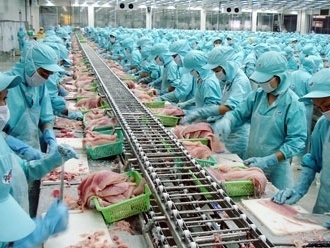
US imports record amount of seafood in 2017
The United States imported more seafood last year than at any point in its history, and the nation’s trade deficit in the sector is growing, federal data show. The U.S. imported more than 6 billion pounds of seafood valued at more than $21.5 billion in 2017, according to data from the National Oceanic and Atmospheric Administration, which oversees American fisheries. The country exported more than 3.6 billion pounds valued at about $6 billion. The widening gap comes at a time when Commerce Secretary Wilbur Ross, who heads the federal agency that includes NOAA, has identified reducing the deficit as a priority for the government. >click to read<09:46

U.S. House set to vote on key fisheries bill, HR-200, Tuesday
It’s called the Strengthening Fishing Communities and Increasing Flexibility in Fisheries Management Act, or H.R. 200. It’s also referred to as the Modern Fish Act. Its author, Rep. Don Young, says the bill would update and improve the Magnuson Stevens Act, the primary law that guides federal fisheries regulators. “Reauthorizing the MSA will ensure a proper balance between the biological needs of fish stocks and the economic needs of fishermen and coastal communities,” Young said after the House Natural Resources Committee approved his bill in December. “MSA has not been reauthorized since 2006. It is long past time for this Congress to act and support our nation’s fisheries.” >click to read< Read the HR-200 Bill->click here< 08:39
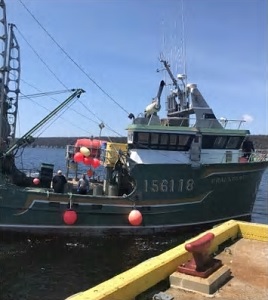
Skipper of fishing vessel that caught fire feared he would never see family again
When the crew of the Challenger Traveler left on a crab fishing trip Friday morning, the last thing they expected to do was end the day clinging to safety on a raft in the middle of the Atlantic Ocean. 4 people safely rescued after abandoning fishing vessel off St. John’s But after the 63-foot fishing vessel caught fire about 160 kilometres outside St. John’s, the four men on board — captain Stan Bennett, his brother Derwin Bennett, cousin Kevin Hewitt and Derek Nichol — had no other choice but to call mayday and abandon ship. >click to read<18:38
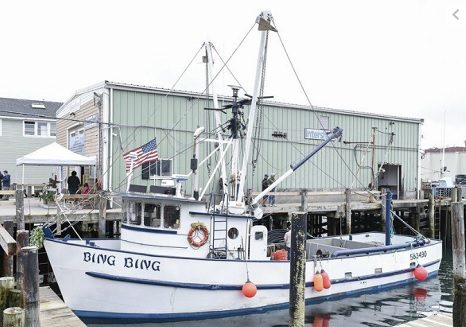
Gloucester: Intershell’s new boat a sign fishing still to be done
A week before Gloucester gives itself over completely to the annual St. Peter’s Fiesta, the city’s fishing fleet and shoreside stakeholders had something tangible to celebrate in the effort to return the city to its fishing glory. Undaunted by gray skies and passing showers, nearly 50 people assembled Saturday at the Intershell facility on Harbor Cove to honor the christening and blessing of the newest vessel in the Gloucester fleet — Intershell’s wholly refitted, 55-foot surf clam boat, F/V Bing Bing. The all-metal vessel, though built in Moss Point, Mississippi, in 1977 as a sea clam boat, has evolved into an all-Gloucester boat through the 10-month re-fitting that included the work of dozens of local tradesmen, the facilities at Rose’s Marine and the entire Intershell team. >click to read<15:23
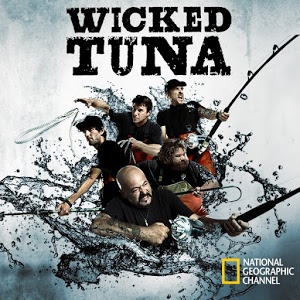
Closing out the seventh season, ‘Wicked Tuna’ celebrating 100th episode
The hit National Geographic reality series “Wicked Tuna” is going to close out its seventh season with its 100th episode Sunday night. When producers first came to Gloucester back in 2011, none of the captains realized what they were in for. Even Capt. Dave Marciano of Beverly, who fishes out of Gloucester, admitted then that he didn’t think anything would come of it. Fast forward seven years; “Wicked Tuna” has remained a steady hit for National Geographic, and now airs in 171 countries and 43 languages. >click to read<14:41
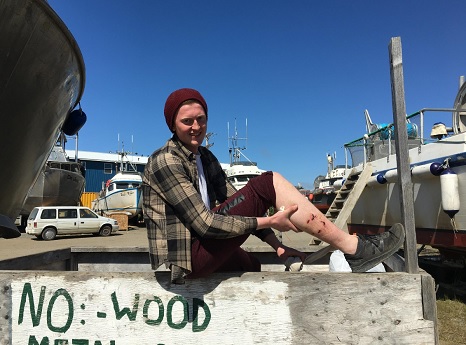
Young fisherman survives bear attack in Naknek boatyard
It was dark when 19-year-old Stig Ure found himself walking through the Upper Lummy boat yard around 2:00 am on June third. He was close to his father’s salmon boat, the Coachman II, where he was staying, when his night took a turn for the worse. He explained, “I crested the bow of the [F/V] Gabey V and all of a sudden I was five to seven feet from this brown bear.” The bear was eating out of a dumpster when Ure surprised it. Almost immediately, Ure reacted. “I just kinda turned into an animal like at that point. Instinct just kicked in, and I bolted.” >click to read<12:30
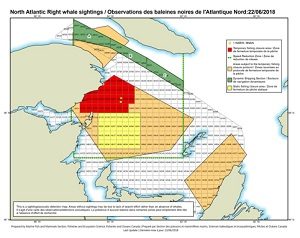
DFO closes another fishing area in northern N.B. after right whale sighting
Another fishing area in the Gulf of St. Lawrence has been closed by the Department of Fisheries and Oceans after North Atlantic right whales were spotted. The latest closure in extends the no-fish zone farther east, well into the middle of the Gulf. The measures will see the following grid closed: GX39. Fishermen have until Tuesday at 3 p.m. to remove any fishing gear in the area. This is the seventh closure of a fishing area over the last month in the waters off northern New Brunswick that has forced crab fishermen and lobster fishermen to move their fishing gear to other areas. >click to read<11:33
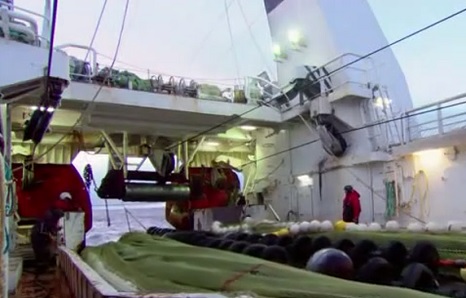
The Factory Trawler – Akamalik
Akamalik is not just a fishing boat. This 280-foot floating factory pulls in up to 20 tons of shrimp per mission, all of which is sorted, boxed, frozen, and prepared for shipping. But it’s not easy. Reaching the haul means facing the ice-choked waters of Greenland in the dead of the arctic winter, where icebergs, sudden storms, and blinding fog are a daily reality. For the crew, their paycheck depends on the size of catch, and risking their lives is just part of the job. Forty five minute video >click to watch<10:56


































